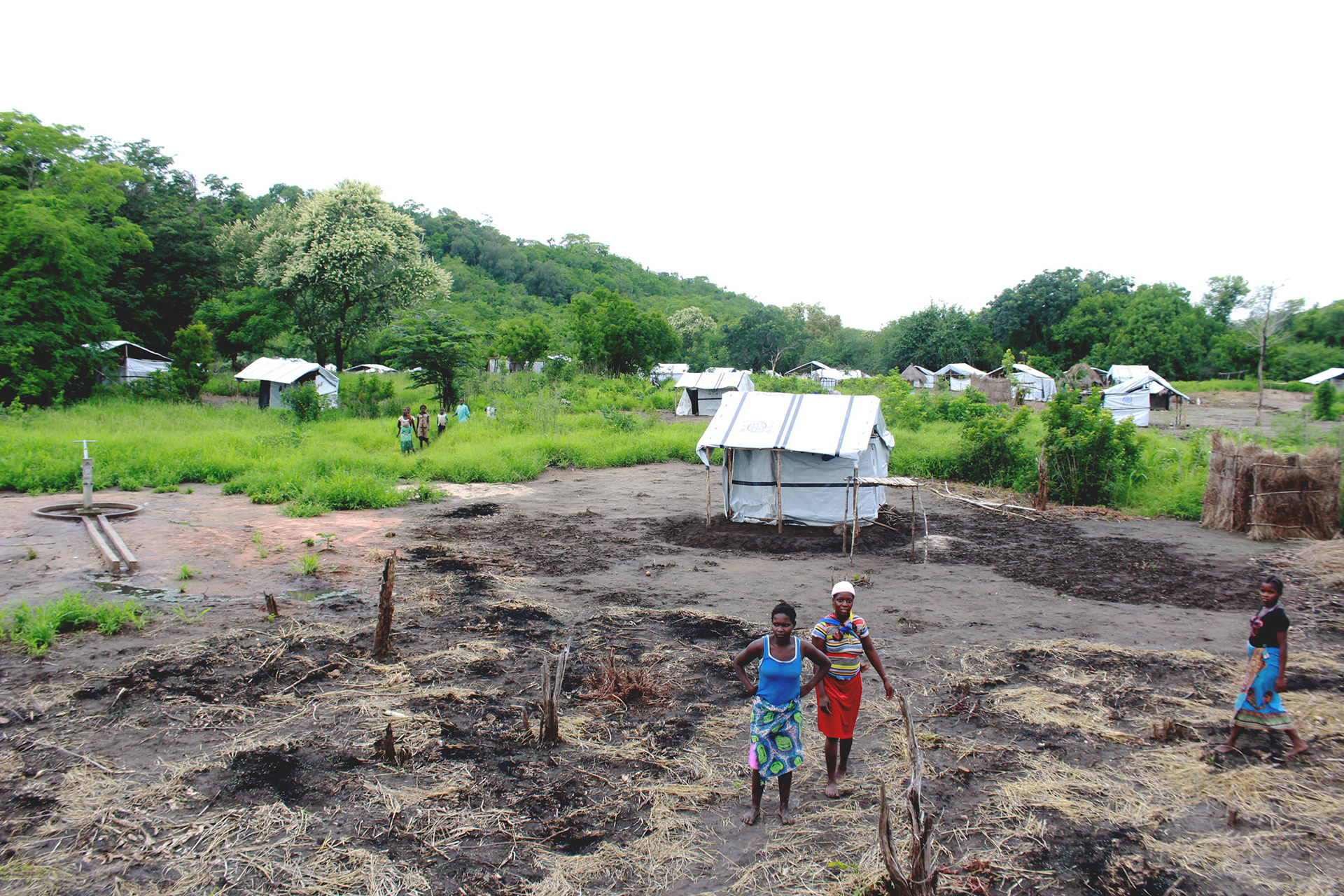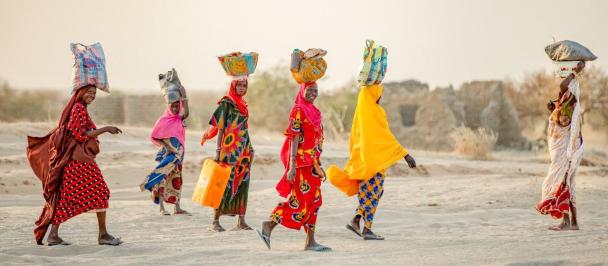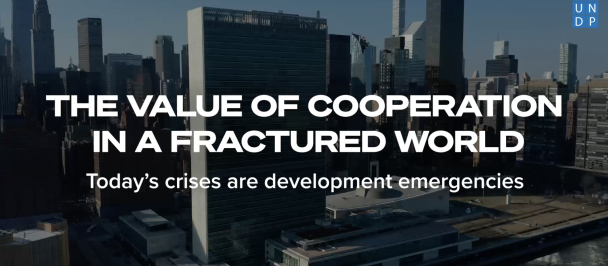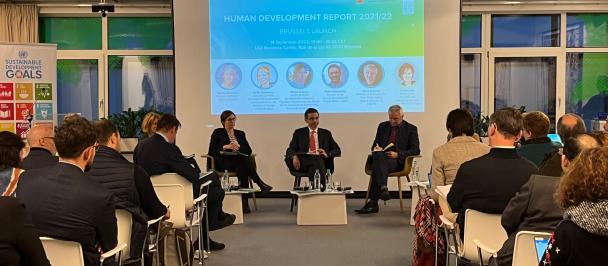People in Chibabava district live in tents after the cyclone Idai. UNDP is working together with partners to rehabilitate house and build back better. Photo: UNDP Mozambique
The European Union (EU) and the United Nations Development Programme (UNDP) signed today in Maputo an agreement under which the EU will contribute with EUR 34.3 million to support the implementation of the Mozambique Recovery Facility, a five-year multi-partner Fund managed by UNDP in partnership with the Government of Mozambique.
The agreement is part of joint efforts to fast track post-cyclone recovery and to build resilience against future disasters in Mozambique. Actions under this initiative will address post-cyclones recovery and resilience, with focus on:
· Rehabilitating community and public infrastructures;
· Promoting economic opportunities and livelihoods for the affected population, in particular women and other vulnerable groups; and
· Strengthening government capacity and national ownership.
“We are very grateful the European Union for this partnership and support for the people of Mozambique, particularly for those who suffered the devastating effects of the cyclones Idai and Kenneth,” UNDP Deputy Resident Representative, Francisco Roquette said. “It provides a firm basis for the sustainable recovery of most vulnerable cyclone-affected communities in Mozambique and will make a tremendous difference in people’s lives. These are exceptional times for the world because of the COVID 19 crisis. UNDP and its partners will make every effort to ensure this and other initiatives also respond to this crisis”.
While coordinating directly with the Government’s Gabinete de Reconstrução to address the human and social aspects of the recovery process, UNDP has also been working with other UN agencies, among which the World Food Programme, International Labor Organization, UN Habitat, UN- Women and local NGOs, as well as with civil society groups and communities.
“This is an essential contribution for recovery and reconstruction after the damages caused by the cyclones IDAI and Kenneth. Our aim is to build back better focusing on resilient infrastructure, and promote economic opportunities for sustainable development in the disaster affected areas, in accordance with the commitments made by the EU in 2019,” EU Ambassador to Mozambique, Antonio Sánchez-Benedito Gaspar stated. “We are aware of the persisting needs and high expectations of the affected communities and are committed to working with partners and the Government of Mozambique in supporting actions to addressing such needs”.
The EU and UNDP are long-standing partners, working in close partnership with the Government of Mozambique. Financing for today’s agreement formalizing EU support to the Recovery Facility has been made available since August 2019 and a lot has already been achieved under the Recovery Facility:
· Over 103,000 households benefited from temporary employment for the rehabilitation of community assets, tree plantation, or other actions;
· Local masons trained on resilient construction techniques and local entrepreneurs supported with business continuity planning and access to finance;
· The Beira dumpsite rehabilitated, and workers of Beira Municipality trained and equipped for safe collection and disposal of the low risk asbestos-containing waste.
Partners like Canada, China, India, Finland, Netherlands and Norway are also supporting the recovery efforts.
About the Mozambique Recovery Facility
· The Mozambique Recovery Facility is the result of the Government of Mozambique and its international partners’ long and challenging post-cyclone emergency response and recovery efforts.
· UNDP’s vision of the cyclone recovery programme in Mozambique is centered on development, governance and resilience. To realize this vision, UNDP established the USD 72.2 million Recovery Facility, a five-year multi-partner Basket Fund to coordinate and implement short-to-long term recovery activities while addressing vulnerability and building resilience to future disasters. It has three important pillars: (1) help the communities recover from the impact of cyclone and floods and rebuild their livelihoods, especially women and persons with disabilities; (2) rebuild housing and community infrastructure; and (3) develop national capacities and systems to plan and implement the recovery and resilience programme.
· The Recovery Facility runs interventions in the cyclone affected provinces of Sofala and Cabo Delgado and plans to extend its activities to Inhambane, Manica, Nampula, Tete and Zambézia.

 Locations
Locations


